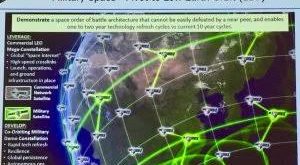In the face of pressing societal challenges, the demand for quantum technologies has surged, offering innovative solutions in domains ranging from hostile environment construction to fortified information transactions and counteracting cyber terrorism. Amidst this transformative landscape, the United Kingdom stands as a pioneer, spearheading the quantum revolution that promises to reshape industries.
Amidst rapid technological progress, the UK’s National Quantum Technology Strategy is taking tangible shape through a network of Quantum Hubs, solidifying the nation’s quantum capabilities. These hubs, specializing in distinct quantum facets, drive collaborative innovation and propel quantum research into practical applications.
Four Pillars of Quantum Innovation
Quantum technologies span four domains, each offering unique potential:
- Quantum Communication: Focuses on secure data transmission using individual or entangled photons, revolutionizing cryptography and secure communications.
- Quantum Simulation: Harnesses quantum systems to simulate complex phenomena, opening doors to breakthroughs in chemistry, materials science, and other scientific disciplines.
- Quantum Computation: Exploits quantum effects to solve previously unsolvable problems, with applications in cryptography, optimization, and drug discovery.
- Quantum Sensing & Metrology: Leverages quantum systems’ sensitivity to external changes, enhancing measurement precision in fields like financial transactions and advanced imaging.
Quantum Computing Quantum Computing Technology: Advancements, Applications and Engineering
QKD Quantum Key Distribution (QKD) Technology: Advancements, Applications and Market Trends
Quantum Sensor The Quantum Sensor Revolution: Pushing the Boundaries of Measurement
The Quantum Leap of the UK
Recognizing the potential of quantum technologies, the UK Government initiated the National Quantum Technologies Programme in 2013, committing £270 million over five years. Anchored by the Engineering and Physical Sciences Research Council (EPSRC), this program established a network of Quantum Hubs across universities like Birmingham, Glasgow, York, and Oxford. These hubs foster collaboration between academia and industry, facilitating the transformation of scientific discoveries into practical solutions.
The UK’s commitment to quantum technology continues to grow, with over £80 million allocated to quantum technology development centers. This sustained investment, totaling over £1 billion, underscores the nation’s dedication to quantum advancements.
Pioneering Quantum Hubs
- Quantum Communications Hub: Led by the University of York, this hub focuses on secure communication methods, safeguarding financial transactions and data transmissions.
- Quantum Computing and Simulation Hub: The University of Oxford leads this hub, aiming to build powerful quantum computers capable of solving complex problems.
- Quantum Sensing and Metrology Hub: Based in Birmingham, this hub revolutionizes industries like mining and excavation by precisely mapping densities and distances using quantum sensors.
- Quantum Hub for Networked Quantum Information Technologies (NQIT): Led by the University of Oxford, NQIT develops scalable quantum computers and quantum communication technologies.
EPSRC Hub in Quantum Computing and Simulation
The EPSRC Quantum Computing and Simulation Hub, led by the University of Oxford, unites 17 universities and over 25 entities in a collaboration aimed at propelling the UK to global leadership in quantum computing and simulation. Bridging hardware and software research, the hub advances platforms, techniques, algorithms, and applications, aiming to create practical quantum computers.
Revolutionizing Imaging with Quantum Technologies
The Quantum Imaging Hub, led by the University of Glasgow, pioneers quantum-enhanced imaging using correlations, entanglement, and timing. This innovation spans hidden object imaging, improved resolution, and “stealth” imaging, with applications in multiple sectors.
Advancing Atomic Clocks for Precision Timing
The UK Quantum Technology Hub Sensors and Timing is dedicated to improving atomic clocks, essential for maintaining precise time standards. These advancements are crucial for global navigation systems like GPS and span applications in radar, satellite timing, and more.
A Quantum Leap for the UK
As the UK’s Quantum Hubs make groundbreaking strides, the nation’s quantum technology sector is poised for unprecedented growth. The quantum leap is a testament to the UK’s commitment to innovation, industry leadership, and a prosperous future.
Charting Quantum Frontiers
Imperial College London’s QuEST initiative is poised to redefine quantum technology’s boundaries, uniting multidisciplinary expertise to bridge quantum discoveries and transformative technologies.
A Quantum Leap for the UK
The UK’s National Quantum Technology Programme (NQTP) drives the nation’s quantum leadership with initiatives spanning quantum computing, communication, sensing, and materials.
New Quantum Technologies to Emerge in Imperial’s Innovative Initiative
Imperial College London’s QuEST initiative unites diverse expertise to craft transformative quantum technologies, driving the UK’s quantum leadership.
In the UK’s relentless pursuit of quantum supremacy, these initiatives will steer quantum technology towards transformative applications, cementing the nation’s quantum prowess for years to come.
Conclusion
The United Kingdom’s journey into the realm of quantum technology is a testament to its commitment to innovation, scientific advancement, and industry leadership. As the demand for quantum solutions escalates in response to pressing global challenges, the UK’s Quantum Hubs have emerged as beacons of progress, driving collaboration between academia, industry, and government to propel quantum research into practical applications. With a focus on diverse domains like quantum communication, computation, simulation, sensing, and more, these hubs are pioneering breakthroughs that promise to revolutionize industries, reshape technology landscapes, and enhance the nation’s security.
The UK’s National Quantum Technology Strategy, backed by substantial investments, underscores the nation’s resolve to remain at the forefront of quantum innovation. From quantum computing and simulation to imaging advancements and precision timing, the UK’s quantum journey is unveiling new possibilities and transforming theoretical concepts into tangible realities. By nurturing collaborations, fostering research, and investing in the next generation of quantum pioneers, the UK is poised to lead the global quantum revolution.
As Imperial College London’s QuEST initiative aligns with the overarching vision of the National Quantum Strategy, it further solidifies the UK’s quantum leadership. The holistic approach to quantum research, spanning disciplines and industry partnerships, positions the nation to chart a path towards transformative quantum technologies that will redefine industries and open doors to unprecedented opportunities.
In this era of relentless technological progress, the UK’s commitment to quantum technology signifies not only scientific advancement but also its dedication to shaping a prosperous and innovative future. The journey into the quantum frontier is a quantum leap, one that cements the UK’s position as a global leader in quantum technology, pushing the boundaries of what’s possible and opening new avenues of exploration, discovery, and progress.
 International Defense Security & Technology Your trusted Source for News, Research and Analysis
International Defense Security & Technology Your trusted Source for News, Research and Analysis

